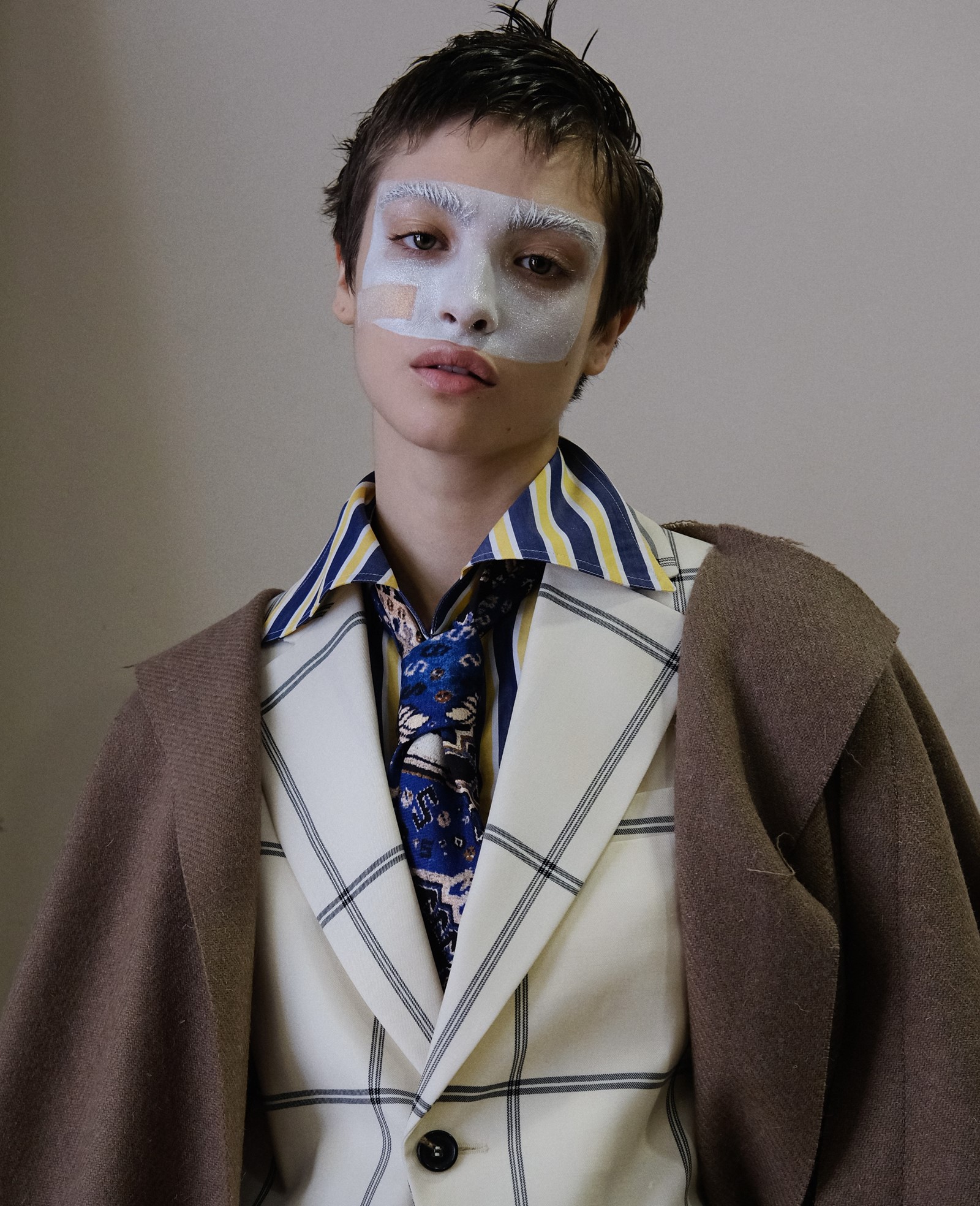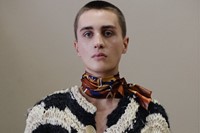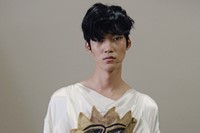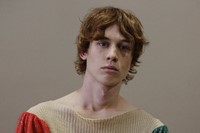As a lifelong member of the Green Party, I can say that getting people to talk about green energy is a Herculean task; Caroline Lucas's occasional appearance on Question Time is about as good as it gets. In fact, and somewhat ironically considering that the fashion industry is one built on insatiable consumption, Vivienne Westwood’s segue into the field – a missive particularly present during her latest collection, titled Ecotricity and dedicated to convincing us all to switch over to the green energy supplier of the same name – has earned the cause more column inches than most other endeavours.
“I talk about fashion to alleviate the hard focus which nevertheless we must apply to save the world” – Vivienne Westwood
As Westwood herself so succinctly explains, “I talk about fashion to alleviate the hard focus which nevertheless we must apply to save the world”. What she offers is an amenable pathway into the politics often dismissed as hippie nonsense; a fashionable hook onto something far less immediately appealing than cowboy shoes and tulle dresses. Both of these things appeared in Ecotricity, and if they weren’t so well executed you’d believe that they were simply set dressing, but Westwood’s determined provocation is not mutually exclusive with her innate aptitude for creating brilliant clothes. That doesn’t mean that her message is any less pertinent, relevant, or powerful; it just means that, all together, it makes for a beguiling package.
An Antidote to Alienation
While continually advocating for organised, eco-centric rebellion might seem antithetical to the anarchistic spirit of punk that Westwood first founded her brand upon (what's less traditionally rebellious, after all, than asking your audience to switch energy supplier?), her explanation as to how she got to where she is now makes a roundabout sort of sense. In Westwood’s eyes, blind consumption – of clothing, of media, of art, or of anything, really – marks the downfall of society, and the antidote to such alienation is to fully embrace culture, and immerse oneself in its history. “Otherwise you’re throwing your roots away – and then who are you? It’s alienating – and, right now, people are alienated.”
It is this detachment from reality that Westwood argues is so problematic, because it is through unquestioning and insatiable consumption that “the rotten financial system” upholds total control. The only way to fight against this system is to combat climate change, to switch to a green economy (first step: sign up to Ecotricity) and thus destabilise a big-business system built on oil money, opaque energy subsidies and conglomerate monopolies. She makes a pretty convincing argument for her way of doing things – and for those who get lost on the way to understanding it, this season she drew impassioned diagrams of it all, which appeared intermittently on the clothes she sent down the runway. “On those shorts there’s everything Vivienne believes in,” said her partner, Andreas Kronthaler. “The last ten years, on a pair of shorts.”
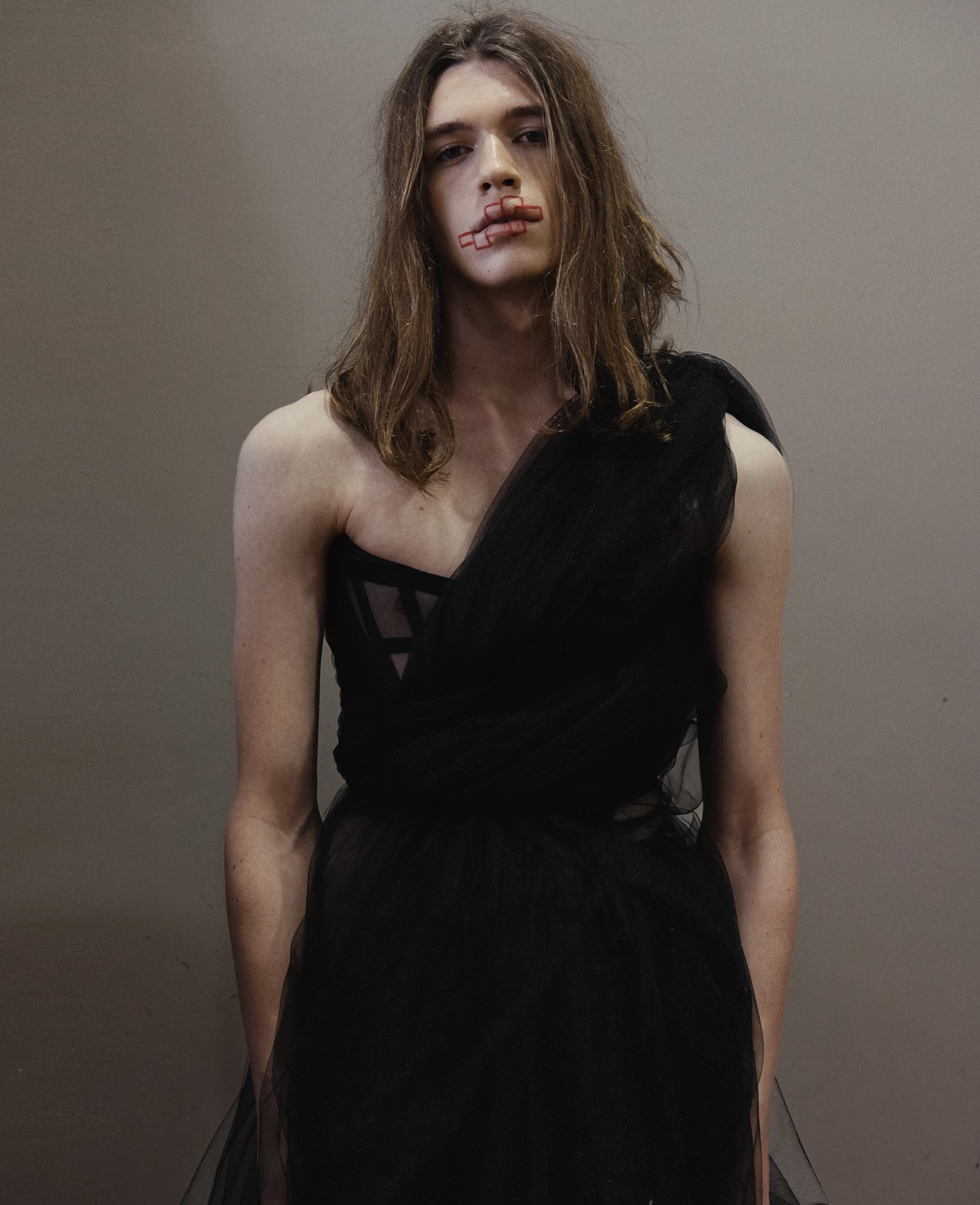
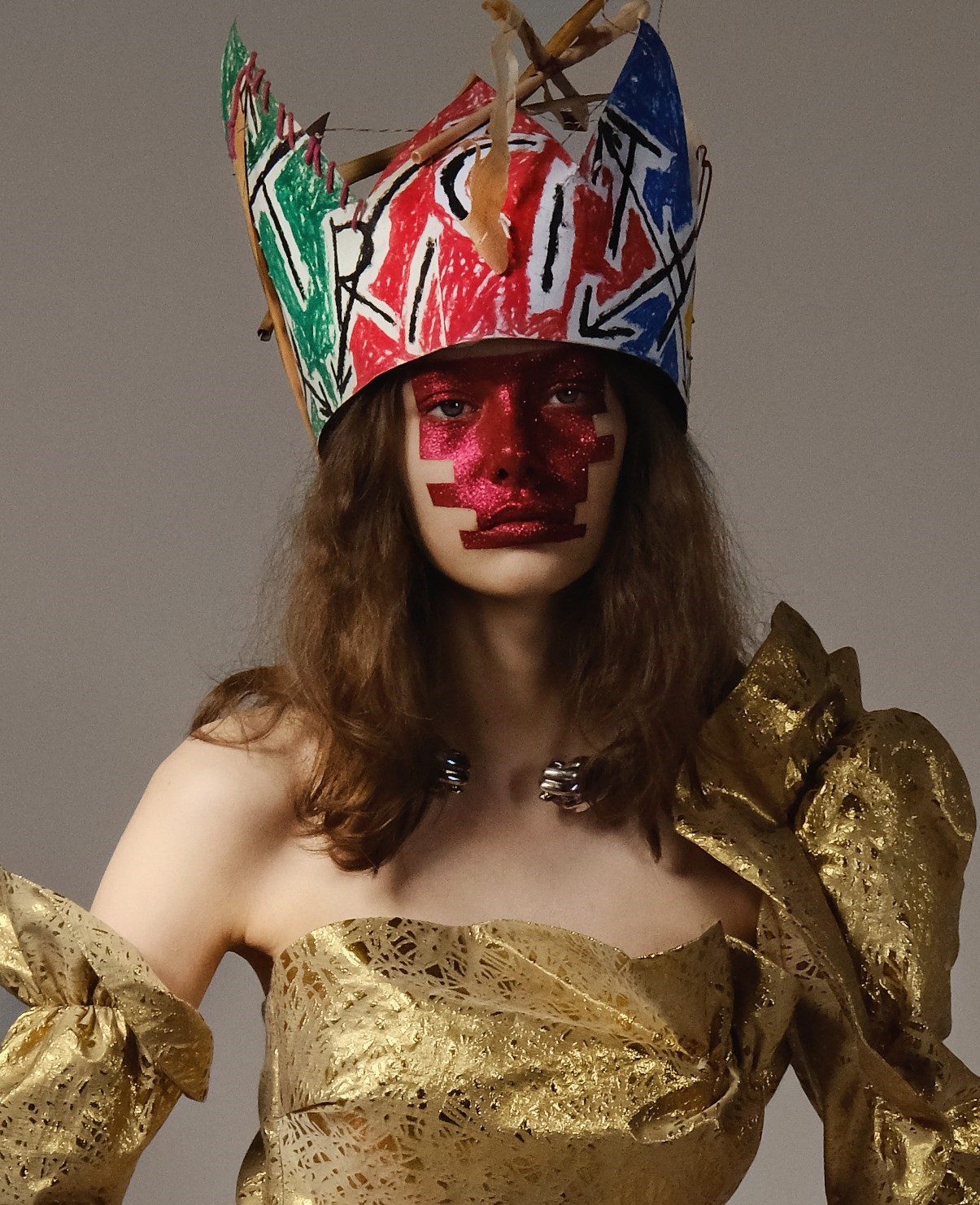
A History of Dress
Whether or not they are the vehicle for a greater message, we are talking about clothes here. Westwood's designs have always been founded upon historic references, which she considers to be the foundation of cultural progress. They draw intricately and thoroughly on a history of dress: from the 18th-century menswear that first inspired her Pirates collection in 1981, and the corsetry of her A/W87 Harris Tweed collection, to the subversion of Savile Row tailoring that has defined her label ever since its inception.
The pieces that formed this collection drew on Westwood's own history of technique: from perfectly oversized, broad-shouldered suiting – it has been seen in abundance on the runway of late, but few deliver it with the confident finesse of Westwood – to corsetry so impeccably constructed that it gave delicate waists even to the boys who wore it. This was an explicitly co-ed show, although Westwood has never been partial to a gender binary. A loose but well-fitting coat was patchworked from various fabrics, “like bits and pieces from the knitting basket at home,” explained Kronthaler, “not recycled, but home-made”, and plenty of looks came complete with paper crowns crafted out of what appeared to be household ephemera – the finger puppets hanging from models’ hands were made out of the pair’s leftover Christmas wrapping paper. “It’s fun, like dressing dolls,” he grinned after the show.
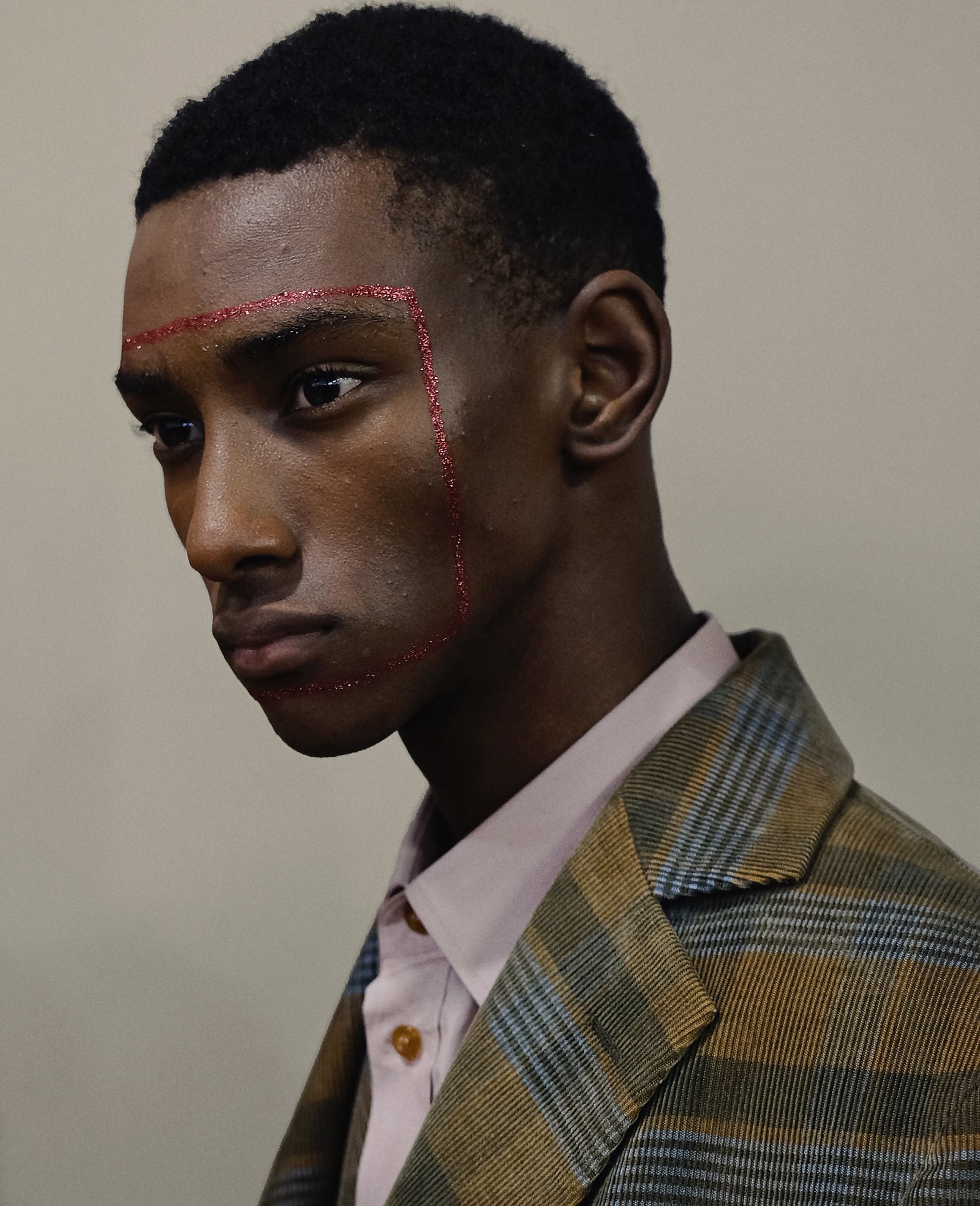
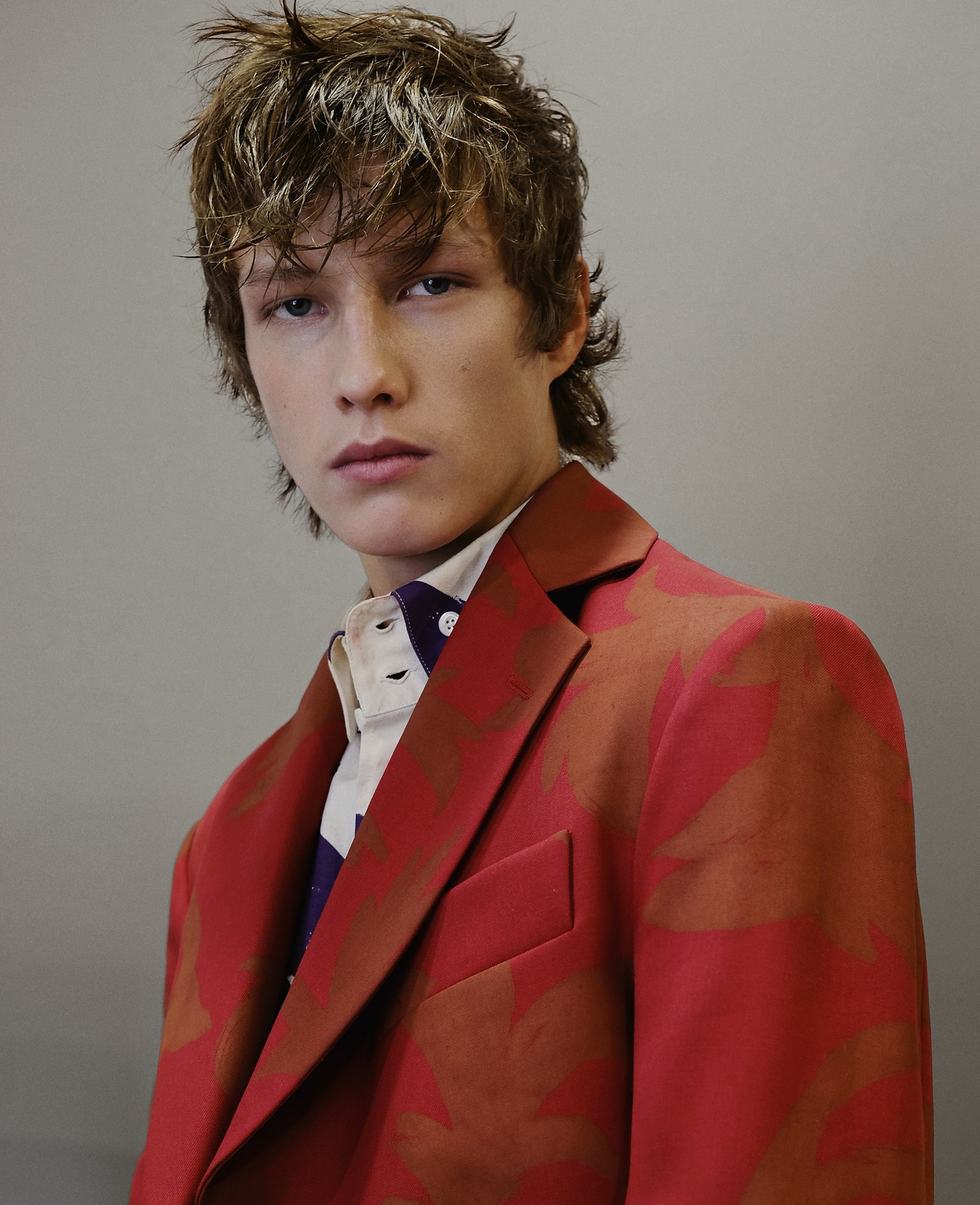
A Call to Action
The sheer joy of both her message and its execution is perhaps what makes Westwood as a brand so completely appealing. While tailoring tradition can often feel startlingly alienating, and politics even more so, there is sense of abundance and democracy which underpins Westwood's work. In fact, when it came to the tailoring, “what was important was the generosity of things,” explained Kronthaler. “Big lapels sticking up into the air as far as possible, not those mean little collars which have, for too long, been too controlled. It was like a celebration of life.”
Westwood has spent the past decade trying to disrupt traditional spheres; politics, perhaps the most undemocratic of all, is just one of many. If a few people switch to Ecotricity as a result of her collection, she will have done more than most for the climate crisis. If a few people like her jackets enough to “buy less, choose well, make it last”, then they will limit the exploitation of the planet's natural resources. What Westwood promotes is simply positive action in some form – and when such a message comes from a woman better versed in anarchic nihilism than most, it is worth listening to. “If you change your life, you change the world,” she says. “I don't want people to be satisfied with not doing anything.” So don't be: sign up to Ecotricity. It only takes a couple of minutes.
